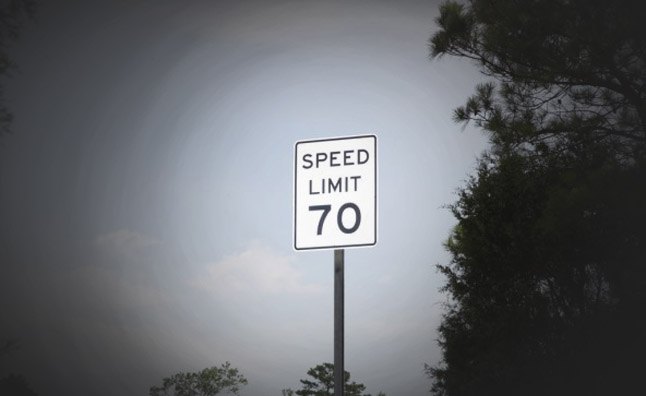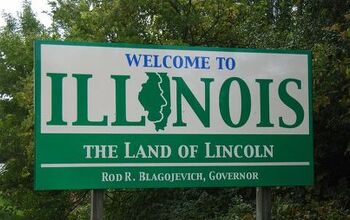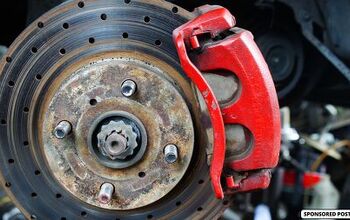70 MPH Speed Limit in Illinois Opposed by AAA

AAA is urging Illinois legislators not to raise the speed limit from 65 to 70 mph on state roadways.
Roeber’s statement sits in the shadow of some states that already have limits much higher. Texas, for example, recently raised now allows driver to travel at up to 85 mph on State Highway 130. Nevada is also considering an increase to the same speed.
Nevada State Senator Don Gustavson pointed to statistics from Utah that show fatality rates in areas with higher speed limits declining. Utah and Texas are the only two states that currently have 85 mph speed limits in place.
Data provided by AAA paints a different picture for Illinois. While fatalities dropped 12 perent between 2008 and 2011, deaths related to speeding rose 14 percent.
“Make no mistake, this bill allows large trucks to travel even faster on our roadways. The majority of large-truck fatalities involve motorists, who unfortunately don’t stand a chance against an 80,000 pound vehicle traveling at high speeds,” Roeber said.

Luke is an energetic automotive journalist who spends his time covering industry news and crawling the internet for the latest breaking story. When he isn't in the office, Luke can be found obsessively browsing used car listings, drinking scotch at his favorite bar and dreaming of what to drive next, though the list grows a lot faster than his bank account. He's always on <A title="@lukevandezande on Twitter" href="http://twitter.com/lukevandezande">Twitter</A> looking for a good car conversation. Find Luke on <A title="@lukevandezande on Twitter" href="http://twitter.com/lukevandezande">Twitter</A> and <A title="Luke on Google+" href="http://plus.google.com/112531385961538774338?rel=author">Google+</A>.
More by Luke Vandezande
































Comments
Join the conversation
Further to my own comments, here is a true expert.... Increased speed limit not a threat to public safety Sun, 05/26/2013 - 11:00am By Dan Metz A higher speed limit on interstate highways is a threat to public safety, says Kevin J. Martin, speaking for the Illinois Insurance Association. Speaking as an accident reconstructionist with 43 years of experience, more than 80 published scientific papers, and having investigated more than 1,200 road accidents and 150 racing accidents, that statement is pure nonsense. Fact: There are literally hundreds of scientific research papers that show that, absent massive police visibility and presence, drivers will travel at whatever speed they feel is comfortable for conditions, regardless of the posted speed limit. For rural interstate highways in Illinois, that speed is currently about 77 mph coincidentally, the exact same average speed as on the unlimited-speed sections of the German autobahnen. Fact: The average death rate from automobile accidents on rural U.S. interstate highway systems is about 0.82 deaths per 100,000,000 miles traveled coincidentally, the exact same death rate as on the unlimited-speed sections of the German autobahnen. Fact: Attributing a traffic fatality to "speeding" relies mainly on the judgment of the police officers who investigated the accidents, essentially none of whom has any training or education in scientific accident reconstruction, and therefore no factual basis for attributing a fatality to "speeding." Fact: At one time, speed limits were set according to the 85th percentile rule: the limit was determined by the speed of the fastest 15 percent of traffic. Now, limits are set in a completely arbitrary fashion on interstate highways. Except for school zones and certain other special circumstances, the 85th percentile rule is a much more rational way to determine appropriate speed limits. Fact: The hated 55 mph interstate speed limit, now thankfully discarded, probably generated more disrespect for the rule of law than prohibition, drugs usage and nearly every other factor combined. It was uniformly ignored and even laughed at by police officers, who had monthly ticket quotas to fulfill, and thus a vested interest in issuing citations. Fact: Careful scientific studies indicate than 50-60 percent of all radar-based speeding tickets are erroneously issued, and could not withstand even a cursory legal defense if put forth by an expert scientifically trained in the use of radar for speed measurement. Radar is the predominant method of determining vehicle speed for purposes of ticket issuance. Fact: Many municipalities and other governmental bodies rely heavily on fines issued for speeding for a significant portion of their yearly budget. How else to explain the comical "driving school," in which a person who supposedly broke the law is permitted to pay a higher fine in return for a blanket reduction of driver license points? Fact: The average speeding ticket costs a driver more than $3,000 in increased insurance premiums over a multi-year period. Insurance premiums have universally been based on the number of citations issued to an individual, but there is only very loose correlation between speeding citations issued and individual accident history. The insurance industry nationwide has made multibillion-dollar profits by selling the idea that "speed kills" to citizens, police officers and legislatures. Speed inappropriate for conditions is certainly a danger; 70 mph on a rural interstate highway is, if anything, actually far too low for a reasonable speed limit. The Eisenhower interstate highway system was designed for 85 mph travel in 1950s-era cars. For a modern car, 70 mph is not only safe, but really just loping along. Everyone involved in accident reconstruction already knows how to reduce the death toll on the highways of the U.S.: rigorous enforcement and prosecution of driving-while-impaired laws. DUI is routinely plea-bargained away and often even ignored. Drivers receive multiple DUI tickets and continue to drive anyway. Drivers even drive without valid licenses and instead of incarceration are given only a slap on the wrist and some "community service." In many other countries, DWI laws are far more rigorously enforced, with predictable results: reduction in accidents and deaths. Graduated driver's licenses, a BAC limit of 0.05 and rigorous prosecution of DWI would save more lives in one week than keeping the Illinois interstate speed limit at 65 mph will save in a year. The howls from the insurance industry reflect not scientific fact but a potential loss of massive profits. Dan Metz is a retired UI professor. He has reconstructed over 1,200 road accidents and 150 race accidents in a 43-year consulting career.
AAA is an insurance company pretending to be a friend to motorists. The motor club image makes them perhaps the most formidable enemy of drivers.